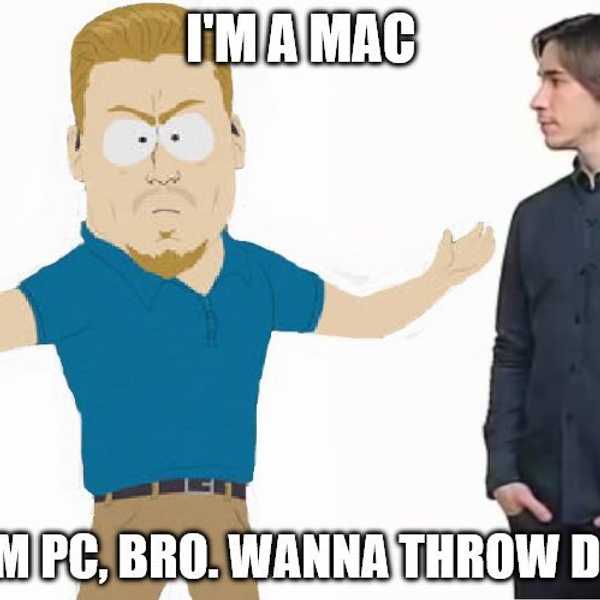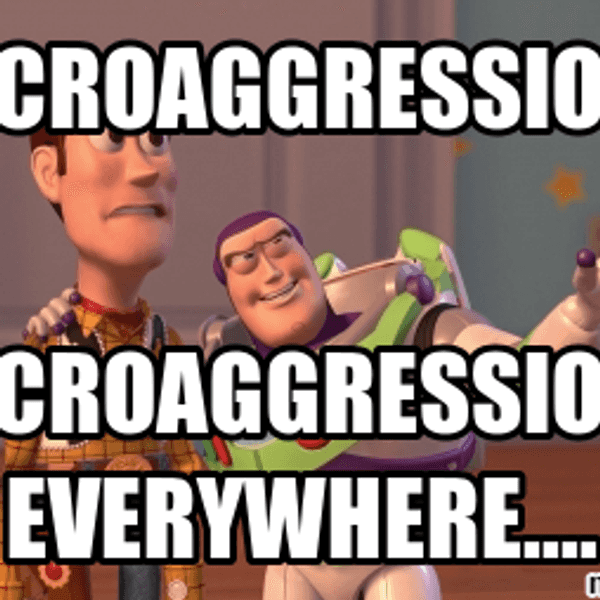I've been seeing a video floating around Facebook of an interview with comedian John Cleese by Big Think, entitled "Political Correctness Can Lead To An Orwellian Nightmare." It should be fairly self-explanatory that, in the video, Cleese discusses his thoughts on political correctness as it relates to comedy.
After watching it a handful of times, I find the title to be a bit misleading. Cleese's issue doesn't appear to lie with the concept of political correctness itself, so much as with political correctness taken too far, specifically where it constitutes as censorship. That's a fair opinion, and one that I think a lot of people would agree with. But Cleese also seems to imply that political correctness has gone too far, which is where our opinions may diverge.
Among the points Cleese makes in the video is that he has been discouraged from performing on college campuses because they are "too PC." He isn't the first comedian to make such a claim; Jerry Seinfeld and Chris Rock have both publicly vowed to cease performing on college campuses because students "can't take a joke," and Bill Maher has vocally expressed his disdain for political correctness.
Political correctness is defined by Google as, "the avoidance, often considered as taken to extremes, of forms of expression or action that are perceived to exclude, marginalize, or insult groups of people who are socially disadvantaged or discriminated against." It's understandable why a comedian might be wary of it, or find it constraining, as humor is inherently subjective, and they might fear that someone will try to draw a rigid "line in the sand" of what is offensive and what is not, or fail to put their humor in the right context. One can get that impression from the very binary way the debate over political correctness is shaped, when in reality, it's more nuanced, and there's probably nobody trying to draw such a line.
But what I think makes comedians most wary of political correctness--at least in its extreme--is that it might result in negative reception if they attempt to push the boundaries or be "edgy." I find that to be a common misconception. Those who favor political correctness, to my knowledge, take no issue with comedians pushing the boundaries. Pushing the boundaries was largely how many of these groups, to which political correctness is intended to be sensitive, broke taboos which allowed them to be more accepted in society.
The question that comedians should ask is: When I criticize people in my comedy, am I "punching up," or "punching down"? In other words, am I criticizing people worthy of being criticized, like corrupt or oppressive institutions, or am I kicking a marginalized group of people when they are already down?
Consider John Oliver, who hosts his own HBO series Last Week Tonight, a "fake news" show somewhat similar to The Daily Show. Oliver routinely tackles controversial and "serious" issues, and has been able to put a comedic spin on some very dark issues, such as torture, capital punishment, and the spread of homophobia in Uganda. But because he "punches up," and mocks systems of oppression, those victimized by these systems know that he is on their side, and his humor is well-received. "Edgy" humor doesn't have to be socially conscious, either; it just has to be funny, well-thought-out, and not "punching down."
An example of what not to do comes from Steve Harvey, a natural comic who can make anyone split their sides laughing within seconds. Harvey ignited controversy with a sketch on his morning radio show, in which he was in character as Sister Odell mocking a fictional parishioner named Bernice for bringing her "halfwit niece" who was a "30-year-old with the mind of a 3-year-old" into church, and complaining about how she was "slow as molasses," and "blowing bubbles." Because he was mocking this fictional woman on the basis of traits commonly displayed by individuals with autism and other neurodevelopmental disorders, this sketch elicited a negative backlash, particularly from parents of children with disabilities. The issue here was not that Harvey was "edgy," but that he was edgy in a way that "punched down," that contributed to the mockery of individuals with disabilities.
I don't think that my college peers are intolerant of "edgy" humor, and I find claims that we are "too PC" to be overblown. I honestly find it hard to believe that anyone would be offended by a comedian like Jerry Seinfeld, who generally refrains from "edgy" material, and only includes things in his material if he thinks they are funny, for which I admire him.
But as time passes, some things that were once acceptable to say cease to be, because they contribute to the marginalization of a particular group of people. College students tend to be more progressive, so they are more likely to reject those outdated words or phrases. They do so in the hopes of progressing as a society, making it more inclusive of groups that have been historically excluded. If people find your humor insensitive, sometimes it's a sign you need to change with the times. Comedians Paul F. Tompkins and Sarah Silverman both understand this, and have some interesting thoughts on the subject.
My advice for comedians is this: if you genuinely believe it would make your comedy funnier, feel free to push the boundaries. Don't feel like you have to be neurotically checking your material to be sure none of it offends anyone, but at the same time, be cognizant of the potential repercussions of your words. If you are "punching down," you might be more than just offending a marginalized group; you might be reinforcing the mindsets behind the systems that oppress them.
You are free to say what you want to say, and your audience is free to receive it how they want. But if hearsay about how college students are "too sensitive" is enough to make you cut out college campuses from your audience, then you are the one who is not willing to engage.





















